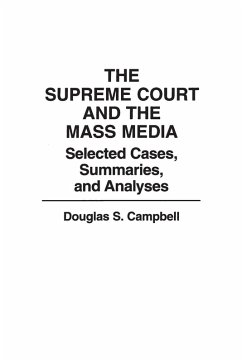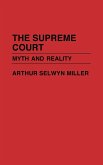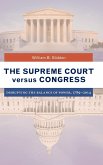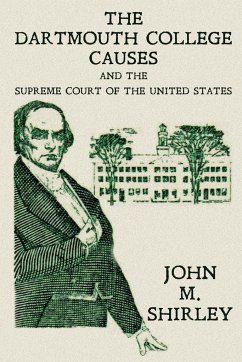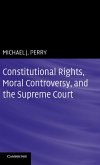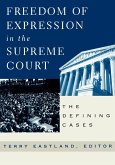"This is a book to order as a reference for students who are in the media law class and are confused about all those cases they can't keep straight. . . . [T]he book does a good job of concisely summarizing the Supreme Court's decisions on media law." Journalism Educator
This book presents comprehensive summaries and clearly focused analyses of virtually all U.S. Supreme Court decisions on libel and privacy since 1964. The author goes beyond the obligatory outline and review of each case and presents the full arguments, often verbatim, of the justices. He presents each case in a broad based yet comprehensive summary allowing the reader to review and understand not just isolated and disjunctive points of law, but the case in its entirety. Covering such cases as the landmark Times v. Sullivan (1964) and the provocative and timely flag burning case of Texas v. Johnson (1989) this book is ideal for students of journalism, especially as a reference for courses in media law. Anyone interested in privacy and First Amendment issues will find The Supreme Court and the Mass Media a source of stimulating ideas. The case summaries are divided into six sections: historical background and legal context; immediate circumstances; narrative summary of the Court's opinion; ruling; narrative summary of concurring and dissenting opinions; significance of the case. The book places each case in its historical and legal context, often connecting particular issues to past and future decisions. More often than not the summaries of the decisions include the Court's own words allowing the reader an objective review.
Hinweis: Dieser Artikel kann nur an eine deutsche Lieferadresse ausgeliefert werden.
This book presents comprehensive summaries and clearly focused analyses of virtually all U.S. Supreme Court decisions on libel and privacy since 1964. The author goes beyond the obligatory outline and review of each case and presents the full arguments, often verbatim, of the justices. He presents each case in a broad based yet comprehensive summary allowing the reader to review and understand not just isolated and disjunctive points of law, but the case in its entirety. Covering such cases as the landmark Times v. Sullivan (1964) and the provocative and timely flag burning case of Texas v. Johnson (1989) this book is ideal for students of journalism, especially as a reference for courses in media law. Anyone interested in privacy and First Amendment issues will find The Supreme Court and the Mass Media a source of stimulating ideas. The case summaries are divided into six sections: historical background and legal context; immediate circumstances; narrative summary of the Court's opinion; ruling; narrative summary of concurring and dissenting opinions; significance of the case. The book places each case in its historical and legal context, often connecting particular issues to past and future decisions. More often than not the summaries of the decisions include the Court's own words allowing the reader an objective review.
Hinweis: Dieser Artikel kann nur an eine deutsche Lieferadresse ausgeliefert werden.

